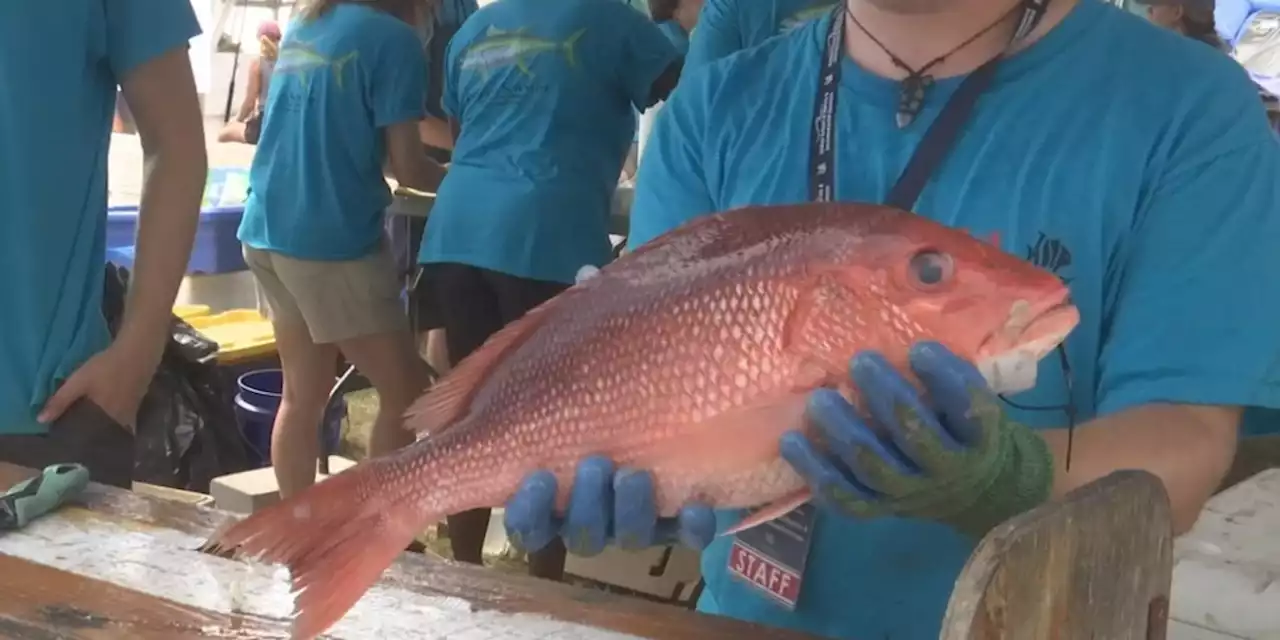The discovery of the radioactive fish comes as Japan prepares to release the treated wastewater from the Fukushima Daiichi nuclear power plant.
TEPCO has acknowledged that fish near the drainage outlets have been unsafe for consumption, as the concentration of cesium in seabed sediment in the area has measured more than 100,000 becquerels per kilogram. The maximum legal level is 100 becquerels per kilogram.
“Since contaminated water flowed into the Fukushima Daiichi nuclear power station port immediately after the accident, TEPCO has periodically removed fish from inside the port since 2012,” an official for the company toldA fish was detected to have high levels of radiation near Fukushima in January 2022, with authorities positing that the fish had escaped from the drainage outlet.
More than 40 fish with cesium levels over the legal limit were found in the plant’s port between May 2022 and May 2023, and 90% came from the inner breakwater where water flows from the area around the melted reactors. The Nuclear Regulation Authority in Japan and the United Nations’ International Atomic Energy Agency have both given their approval of TEPCO’s plan to release the wastewater into the Pacific Ocean, which it says it needs to do to secure space for decommissioning the plant. The discharge process, using an Advanced Liquid Processing System , would take decades to complete.
United States Latest News, United States Headlines
Similar News:You can also read news stories similar to this one that we have collected from other news sources.
 Fukushima nuclear plant water release within weeks raises worries about setbacks to businessesWithin weeks, the tsunami-hit Fukushima Daiichi nuclear power plant is expected to start releasing treated radioactive wastewater into the sea, a highly contested plan facing fierce protests in and outside Japan
Fukushima nuclear plant water release within weeks raises worries about setbacks to businessesWithin weeks, the tsunami-hit Fukushima Daiichi nuclear power plant is expected to start releasing treated radioactive wastewater into the sea, a highly contested plan facing fierce protests in and outside Japan
Read more »
 Your genes may influence how much fruit, fish or salt you eatNearly 500 regions of the human genome appear to directly impact your dietary intake by affecting perception of flavours and food preferences
Your genes may influence how much fruit, fish or salt you eatNearly 500 regions of the human genome appear to directly impact your dietary intake by affecting perception of flavours and food preferences
Read more »
 How specimens caught at the Alabama Deep Sea Fishing Rodeo boost marine research worldwideThe event is two-fold; anglers hook the fish while scientists glean invaluable research.
How specimens caught at the Alabama Deep Sea Fishing Rodeo boost marine research worldwideThe event is two-fold; anglers hook the fish while scientists glean invaluable research.
Read more »
